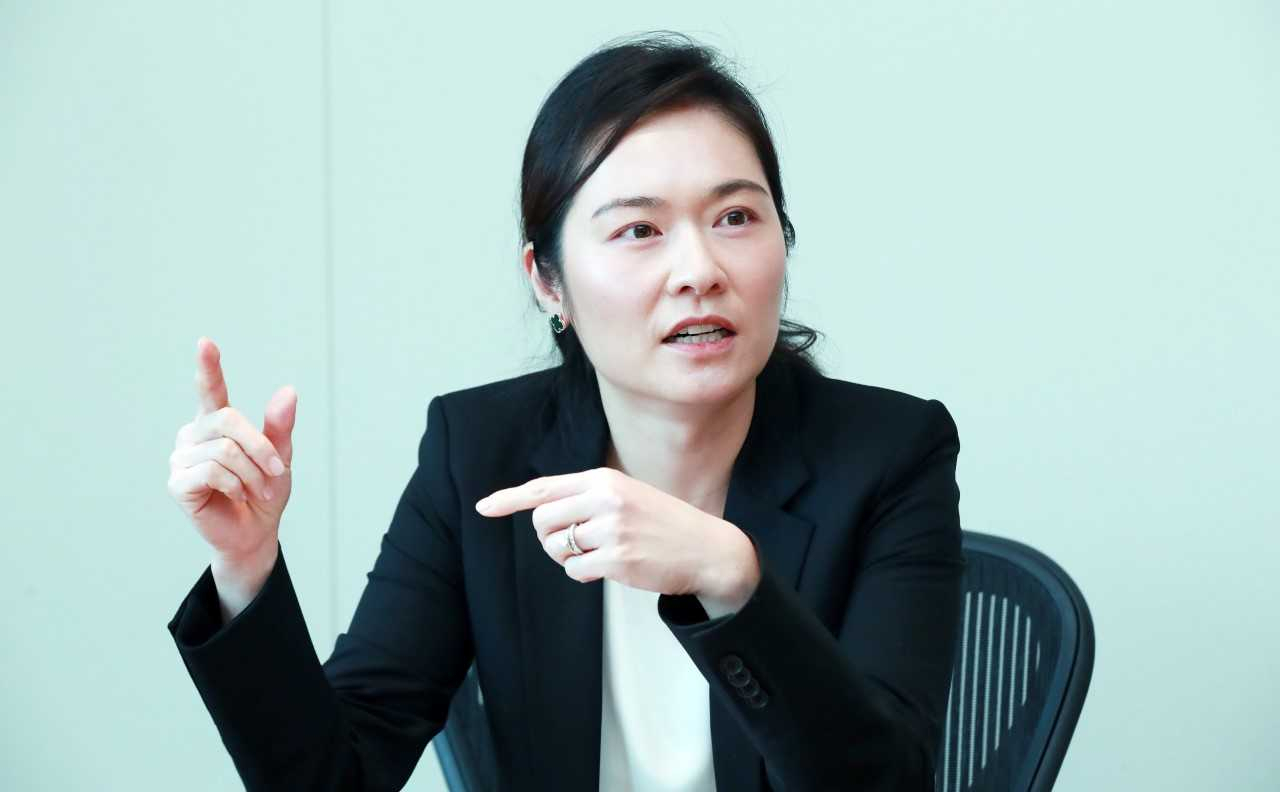 |
Jin Hennig, managing director and global head of metal products at CME Group, speaks during an interview with The Korea Herald at The Shilla Seoul, Friday. (CME Group) |
Korea is likely to see more activity in the metal derivative market amid the growth of battery metals trading, said a CME Group executive in charge of handling the firm’s global metals business.
Jin Hennig, managing director and global head of metal products at CME Group, a leading financial derivatives exchange, said Korea can play a critical role in both metal trading and transactions as the overall market is growing at a fast pace.
CME Group, as a derivative marketplace, offers futures and options of commodities and finance, ranging from agriculture and metals to interest rates, allowing investors to hedge price risks.
“Korea has been one of the fastest-growing markets for (CME Group's) metals business in the past three to five years,” Hennig said in an interview with The Korea Herald in central Seoul on Friday.
Born and raised in Seoul, Hennig moved to the US when she was 16, and has been with CME Group since 2011. She is a member of the US Commodity Futures Trading Commission's Energy & Environmental Advisory Committee, where she advises on the role of metals in the transition to clean energy.
According to Hennig, Korea has been the largest market in the Asia-Pacific region for CME Group in terms of market volume.
While gold has been traditionally the main market of interest in Korea as a safe-haven investment tool, the trend is changing as battery-related metals, such as cobalt and lithium, are receiving attention as the electric vehicle market expands.
In response to the larger transactions in metals trading, the need for derivative instruments related to the market comes as investors need a tool to protect against volatile price swings.
“We have been seeing great developments around battery metals,” Hennig said. “Metals are in a very bright spot because we need to build infrastructure to accommodate (them) as the energy transition happens. Electricity itself is not an issue, (the issue) is more (the storage) of electricity. The answer to that is batteries.”
“Because of the (US') Inflation Reduction Act, the (ESG drive) and market fragmentation, a lot of these markets are going to become more regionalized,” she said, explaining why a more diverse portfolio is needed now more than ever to hedge risks.
However, Hennig judges that the prices of metals, including cobalt, lithium and copper, have not yet reflected their full values as slower Chinese demand due to China's slowing economy has chilled the market.
With more than 20 years of experience in the metal trading business, Hennig believes trading in metal futures and options can be a stable tool to hedge risks during a time of high volatility.
“Sixty percent of our time is focused on the current liquid set of products and making sure that they are doing well. But 40 percent of our time gets spent exploring a new market and creating a hedging tool for the marketplace,” Hennig said.
“Our job is to make sure that we are staying ahead of the curve to find a contract or needs in the marketplace for the risk management tool," she said.







